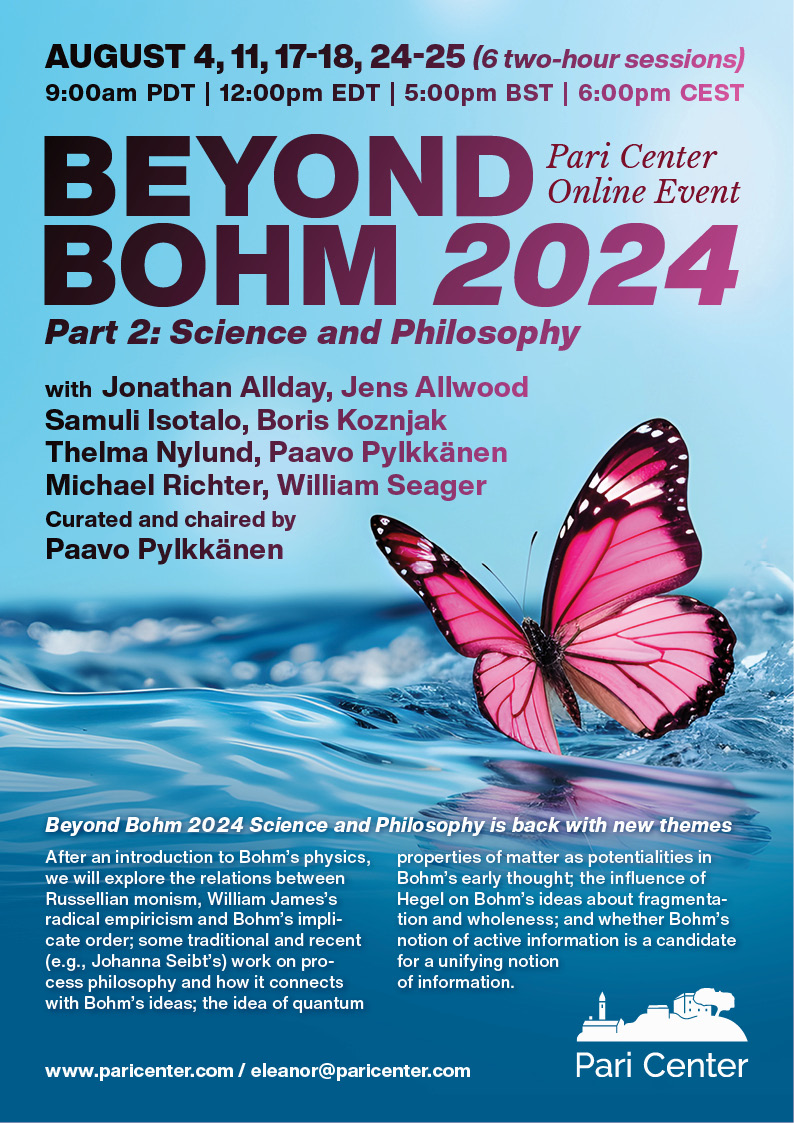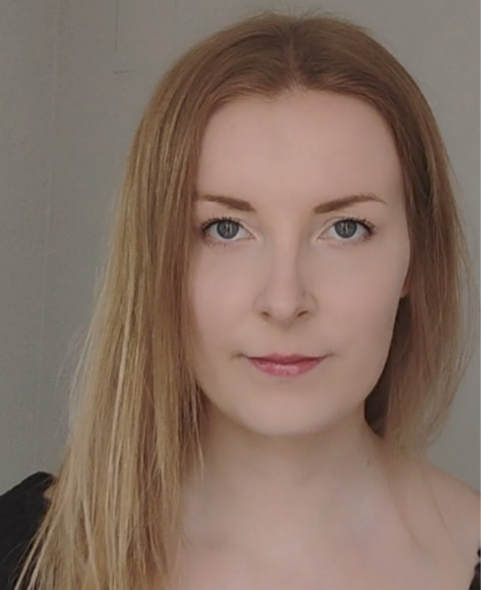Your cart is currently empty!

Beyond Bohm 2024, Part 2 – A Comparative Overview of Process Metaphysics and Substance Metaphysics & Indeterminate, Concrete Individuals in Johanna Seibt’s General Process Theory
- This event has passed.
August 17, 2024 @ 6:00 pm – 7:30 pm CEST

72 people are attending Beyond Bohm 2024, Part 2 – A Comparative Overview of Process Metaphysics and Substance Metaphysics & Indeterminate, Concrete Individuals in Johanna Seibt’s General Process Theory
Part 1:
A Comparative Overview of Process Metaphysics and Substance Metaphysics
with Samuli Isotalo
Part 2:
Indeterminate, Concrete Individuals in Johanna Seibt’s General Process Theory
with Thelma Nylund
Saturday August 17
9:00am PDT | 12:00pm EDT | 5:00pm BST | 6:00pm CEST
2-hour session.
The session is live and you will be sent the RECORDING.
Part 1: A Comparative Overview of Process Metaphysics and Substance Metaphysics
with Samuli Isotalo
Process metaphysics is an approach in philosophy according to which reality in its fundamental nature is processual. That is to say, processes rather than things are taken to be the most fundamental phenomena existing in nature. Although process metaphysics is usually attributed immediately to the ideas of Alfred North Whitehead (1861-1947), process metaphysicians do not as such have to commit themselves into the particular views of him. Rather, process metaphysics should be looked at as a general manner of approach in metaphysics instead of a fixed set of doctrines centred around a particular thinker. Faithful to its own teachings, process metaphysics should be looked at as an ongoing process which attempts to understand the most fundamental nature of reality.
On the other hand, the more influential and more mainstream approach—substance metaphysics—takes things as the fundamental building blocks of reality. This approach usually sees these things as substances, that is to say, as some kinds of independent, discrete and static sort of entities, where the relatedness and interconnectedness of these things is quite often taken to be something secondary in nature, if not altogether irrelevant. Thus, it can be said that while process metaphysics emphasizes interactive relatedness, wholeness, activity and interdependence, substance metaphysics in contrast emphasizes discrete individuality, separateness, fixity and independence.
In my talk, I shall present these two ways of doing metaphysics in their general outlines, but I do so from the perspective of process metaphysics. I’ll do this by mostly relying on the ideas of Nicholas Rescher (1928-2024).

Samuli Isotalo is a doctoral student in philosophy at the University of Turku, Finland. His dissertation focuses on metaphysics, the study of Being itself. More specifically, what it is to be, what is its nature, and how to understand and think of the whole, that is, Being itself as a totality. The project has recently begun by first focusing on the metaphysics of the medieval period, especially St. Thomas Aquinas (1224?-1274). The project is not, however, meant to be purely historical. Rather, the insights of the medieval metaphysicians are intended to be brought into such present-day discussions where metaphysics intersects with natural science. It is here where process metaphysics has come to be of much interest to this project.
Part 2: Indeterminate, Concrete Individuals in Johanna Seibt’s General Process Theory
with Thelma Nylund
Johanna Seibt has been developing a process ontological theory called ‘general process theory’ in which the category of functionally individuated dynamic processes is the only category. Since entities are more or less general and can be multiply located in the theory of general processes, ordinary objects such as a singular cat, but also traditional class-like entities like biological species, are both thought of as concrete individuals. Seibt divides entities into different types of dynamics based on their ‘spatio-temporal signature’ which tells us how the entity is located in space and in time using the notions of like-partedness or homeomereity and self-containment or automereity. Spatio-temporal self-containment can only make sense for entities individuated functionally and can only be defined in terms of a non-standard mereology of general process theory in which parthood is a non-transitive relation.
In this talk I will argue that Seibt rejects successfully several traditional ontological presuppositions and that understanding entities as the more or less indeterminate, yet concrete individuals of general process theory, provides philosophers with novel tools for ontological inquiry.

Thelma Nylund is a Master’s level student in philosophy at Tampere University, Finland. She is finishing her Master’s thesis in which she compares the neo-Aristotelian four-category ontology of E. J. Lowe to Johanna Seibt’s process-ontological theory. After graduation she is planning to continue studying process metaphysics in doctoral studies.
Who's coming?
72 people are attending Beyond Bohm 2024, Part 2 – A Comparative Overview of Process Metaphysics and Substance Metaphysics & Indeterminate, Concrete Individuals in Johanna Seibt’s General Process Theory
